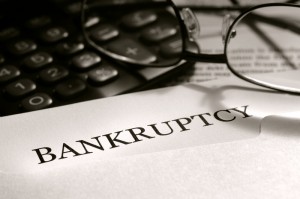 The date and time of the filing of a bankruptcy case is significant for several reasons. For example, foreclosures or sales of repossessed property that are scheduled after the filing date are stayed, meaning they cannot go forward. Another important aspect of the filing date and time is that it defines what debts are incurred pre-petition versus post-petition. Debts incurred before the bankruptcy is filed are pre-petition debts. These debts may be discharged in Chapter 7 bankruptcy cases and are subject to the reorganization plan in Chapter 13 bankruptcy cases. Post-petition debts are not discharged in Chapter 7 cases and do not receive treatment in a Chapter 13 plan unless the plan is modified to cure mortgage arrears or income tax liability that was incurred post-petition.
The date and time of the filing of a bankruptcy case is significant for several reasons. For example, foreclosures or sales of repossessed property that are scheduled after the filing date are stayed, meaning they cannot go forward. Another important aspect of the filing date and time is that it defines what debts are incurred pre-petition versus post-petition. Debts incurred before the bankruptcy is filed are pre-petition debts. These debts may be discharged in Chapter 7 bankruptcy cases and are subject to the reorganization plan in Chapter 13 bankruptcy cases. Post-petition debts are not discharged in Chapter 7 cases and do not receive treatment in a Chapter 13 plan unless the plan is modified to cure mortgage arrears or income tax liability that was incurred post-petition.
Sometimes debtors need to incur new debt post-petition. In Chapter 13 bankruptcy cases debtors ask permission from a trustee who will review the request and determine if incurring additional debt is necessary and if it will adversely affect the bankruptcy case. If the trustee denies the request then the debtor can file a formal motion with the court and set it for hearing. The judge will then decide whether or not to allow the debtor to incur the new debt.
When debt is incurred by Chapter 13 debtors post-petition without permission, it may still be discharged if the debtor converts their case to Chapter 7. The most common type of debt in this situation is medical debt. Debtors commonly incur medical debt without court permission. Any debt incurred after filing Chapter 13 bankruptcy but before converting the case to Chapter 7 can be discharged, assuming the debt isn’t in a category that makes it nondischargeable, such as student loans, child support, or income taxes. Conversions usually required a change in circumstances, such as a decrease in income, increase in expenses, or some reason why the Chapter 13 case could not be successful.